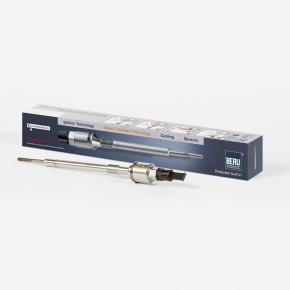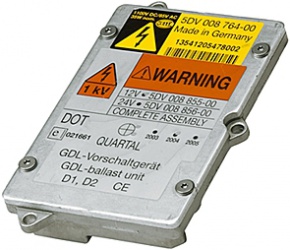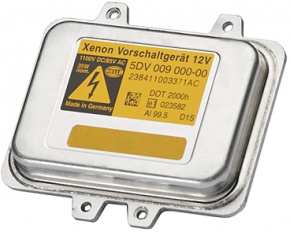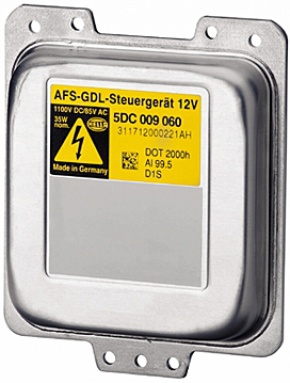
Lighting and Ignition
In order to ensure wider application coverage within the aftermarket, 360° has introduced new ranges and parts into the FPS portfolio. The recent additions include high intensity discharge (HID) ballasts as well as specialised pressure sensor glow plugs running on instant start systems (ISS).
HID BALLASTS
360° has recently introduced 26 new-to-range HID Ballasts from Valeo, Hella and Magneti Marelli to fill in some existing gaps in range. Essential for triggering and operating HID Xenon bulbs (available from the Ring brand via FPS) fitted to a 12-volt electrical system, the ballast produces a high voltage (approximately 23,000V) whilst adjusting the current flow through the lamp to 2.5A and the maximum power to 70 watts.
During operation, the ballast adjusts the lamp’s power wattage and reduces the voltage to between 67-112 volts; the ballast works only when it receives a supply of between 9-16V. To prevent any damage to the ballast, a safety switch turns off automatically if the lamp does not light up after 4 attempts at triggering it.
Failure and replacement
A faulty ballast can cause a total loss of headlamp operation. Designed to have a progressive spring rate, meaning that resistance increases as the load increases, the HID ballast allows heavy duty springs to be used when the vehicle is unloaded. Ballasts can fail due to faulty supply voltage, ground/earth connection, a faulty xenon lamp or an internal short circuit.
The following steps should be taken during diagnosis:
- After switching on the headlamps, if the ballast triggering attempts fail, the xenon lamp should be renewed.
- If trigger attempts aren’t carried out, the fuse should be checked. If the fuse works, the voltage and ground/earth at the ballast should be checked for a voltage of between 9-16V
- If the voltage, ground and the xenon lamp are all working, a faulty ballast is the cause of the failure and needs replacement.
During the supply voltage check, the ballast must be securely connected to both lamp and supply connector. When working on the xenon lamp, the ballast must be disconnected to prevent any electrical shocks.
BERU INSTANT START SYSTEM (ISS)
Following up on the rising demand for ignition parts supported by ISS technology, FPS has recently introduced a short range of unique Beru pressure sensor glow plugs, covering such applications as Vauxhall Insignia 2.0 CDTi 130 (2008-2014), Audi A3 1.6 TDi 110 8v (2012>), Audi A3 2.0 TDi 8v (2012>) and Vauxhall Astra J 1.3 CDTi 95 Mk6 (2009>).
ISS allows the diesel engine to start as quickly and reliably as a petrol engine, even at extremely low temperatures (-25°C). The parts are specially designed for diesel engines with direct injection where the time and voltage of the performance-optimised glow plugs are individually regulated by the electronic control unit. The ISS contributes to a permanently safe combustion process and prevents warm-up problems, irregular running of the engine, diesel nailing and excessive vibrations.
The ISS system glow plug converts power absorbed in the head area more effectively and consumes around half the energy of the standard glow plug.
- Features
- Extremely short heating-up time (up to 1,100 °C in 2 seconds)
- Electronically controlled pre, intermediate and post-heating
- Immediate stable idling and clean load assumption
- Minimised emission of pollutants and fuel consumption in warm-up phase
- On-board diagnosis compatible
- Meets the latest requirements of EURO pollution standard
In 2nd generation ISS, suction intake air is pre-heated by an additional heating flange, further reducing the consumption and emission while optimising engine running and starting behaviour.
Parts are catalogued on the MAM Autocat and the F:Drive² under: Filters & Ignition>Plugs (Glow Plugs & Spark Plugs).





 Click here to open the navigation menu
Click here to open the navigation menu